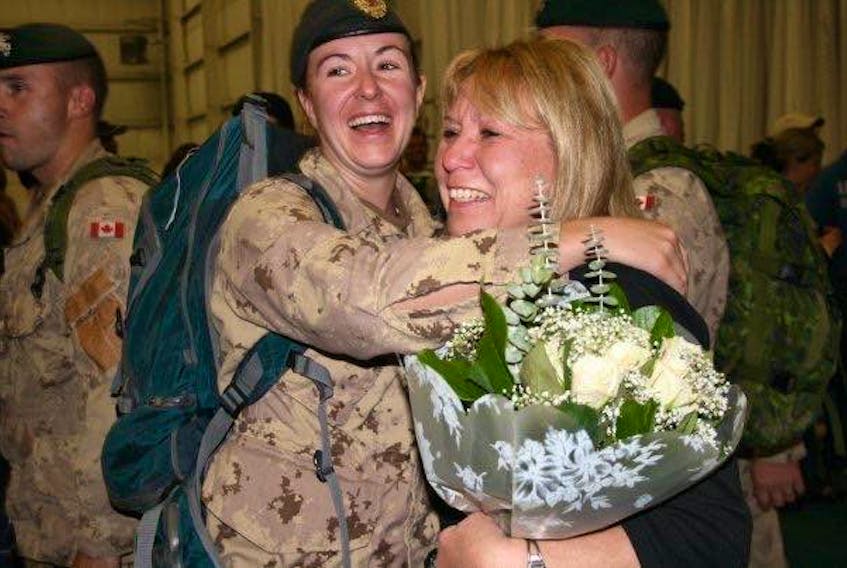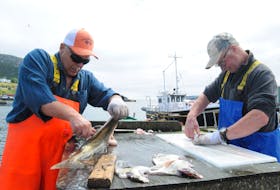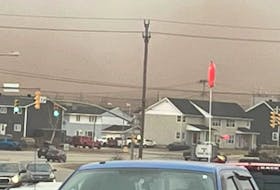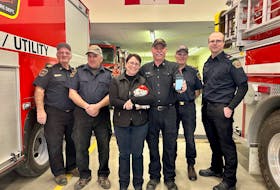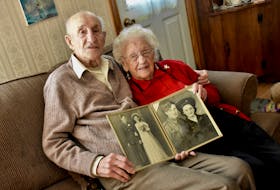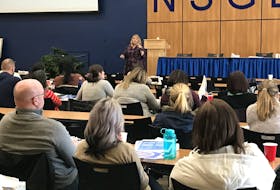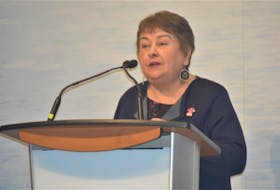CHURCHILL FALLS, N.L. — I vividly recall Remembrance Day ceremonies growing up in Churchill Falls. It would normally be a cold but bright sunny day; a large Labrador day. The whole community would gather in our school gym and as one of the local Sea Cadets played Last Post and we paused for a moment of silence, I would try to imagine what things must have been like for those brave young soldiers who fought in the World Wars.
I pictured them huddled in their trenches in the cold and rain as shells exploded around them, waiting for the moment they would be ordered to go over the top. I imagined how terrifying that must have been. After the ceremony, I asked my parents if anyone from our family had served in the wars.
I longed for a personal connection to these events and to hear the stories those soldiers had to tell. However, aside from my grandfather’s service in the Merchant Marine, nobody from my close family had served in the military.

Since joining the Canadian Armed Forces, my feelings on Remembrance Day have evolved. As I went through my army training to become a combat engineer and spent more and more time in the field in all kinds of weather, I gained a stronger appreciation for how bone chilling and miserable those long stretches, soaked to the bone in the trenches of Europe or covered in snow in the mountains of Korea, must have felt.
After deploying to Afghanistan, I found myself thinking how much more difficult the goodbyes must have been for soldiers and their families when they had no idea how long they would be leaving for and didn’t have the luxury of email and accessible telephones to stay in close contact. I can’t imagine what it must have been like waiting everyday in hopes of getting a letter that would confirm that, at least at the moment it was mailed, your loved one was still alive.
As a new mom, I have suddenly have a much deeper appreciation for the fear and helplessness parents and loved ones must have had watching their sons and daughters head off to war. I recall how my own parents, sick with worry ahead of my first deployment, offered me my mother’s severance pay — she had just retired from 30 years of teaching — if I would just stay safely at home.
Not having veterans in my own family, I tried to seize opportunities over the years to speak with as many of our Second World War and Korean War veterans as I could. I was immensely sad watching the 75th anniversary of D-Day this year thinking this may be one of the last times we see those, who so bravely made their way ashore in 1944, gather on the beaches of Normandy to commemorate. Today’s children will not have the opportunity to hear their stories first hand.
Through my comrades in arms, I gained personal connection to these brave souls I once sought as a child.
Although I continue to think about the courageous Newfoundlanders who went over the top at Beaumont Hamel in 1916, those who stormed the beaches of Normandy in 1944, and the valiant soldiers of the Battle of Kapyong in Korea, I also now remember my college friend Nichola, who was killed while fighting the Taliban in Afghanistan in 2006; my friend Andy, who lived down the street and would take care of my dog when I was away, who was killed when he stepped on an improvised explosive device while leading his soldiers in 2009; and so many of the others we lost during our 10 years in Afghanistan.
I remember those I feel died on my watch and often wonder if I could have done more. I also remember all those who came home forever changed, like my sergeant major who, having assisted in unearthing mass graves in Bosnia, now becomes sick to his stomach whenever he smells barbecued food. Many soldiers return so tormented by what they have seen, done, or where not able to do, they are no longer able to continue. We have lost far too many after the fighting has ended.
The costs of war are always high; however, as long as there are those who seek to threaten the lives, freedom and human dignity of their fellow men and women, we must be prepared to fight to defend our values and human rights. The decision to enter an armed conflict should never be taken lightly and must be measured against the lives risked, the cost of inaction, and the potential to do good.
Sometimes the costs of not acting can be even higher as LGen (retired) Romeo Dallaire can attest, having witnessed the Rwandan Genocide in 1994, largely powerless to intervene because of restrictive UN rules of engagement and orders. By remembering and honouring those who served bravely and those we have lost, we remind ourselves of the true cost of war and the need to safeguard our peace.
Lest we forget.
This story was contributed by Lieutenant Colonel Melanie Lake with the Canadian Armed Forces, a native of Churchill Falls, Labrador, who now resides in Ottawa, Ontario.

